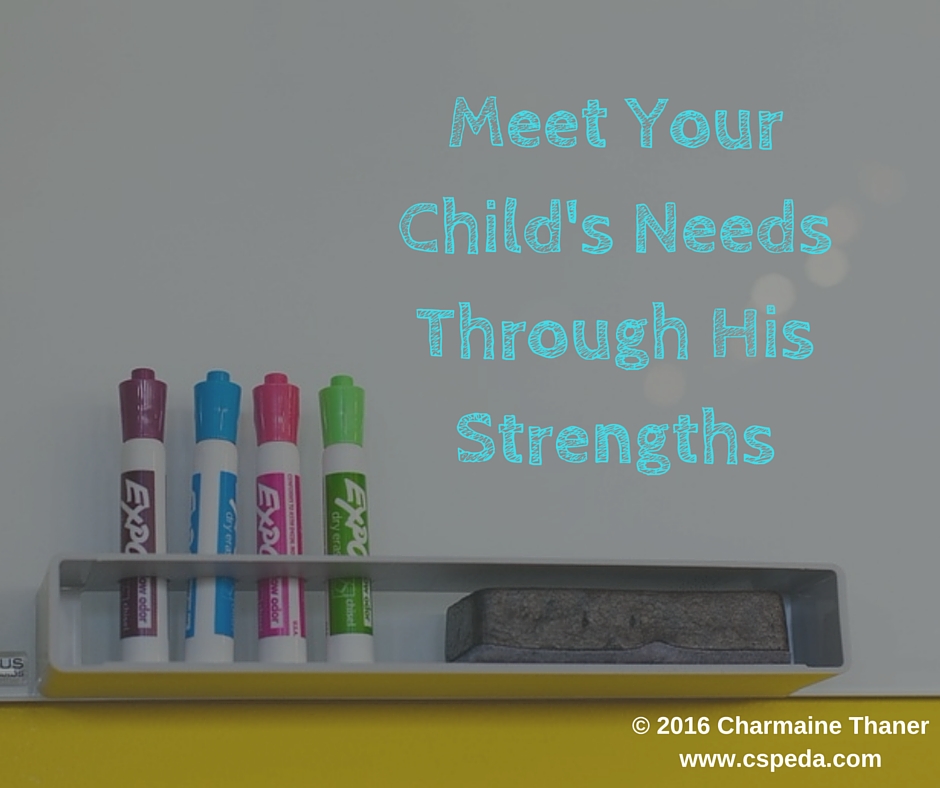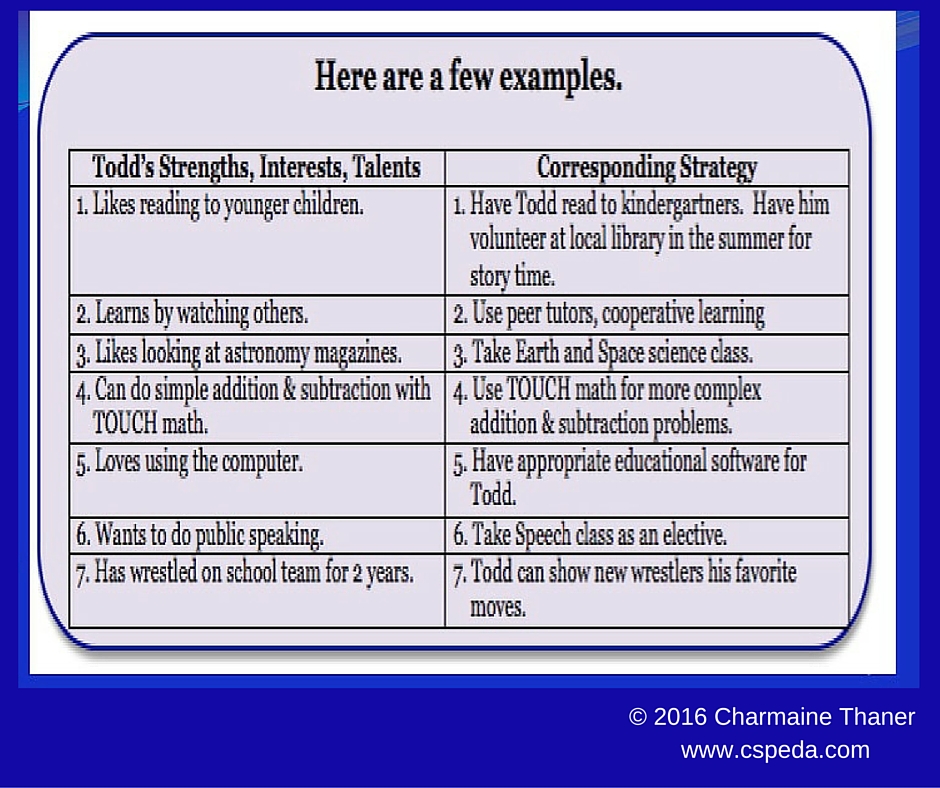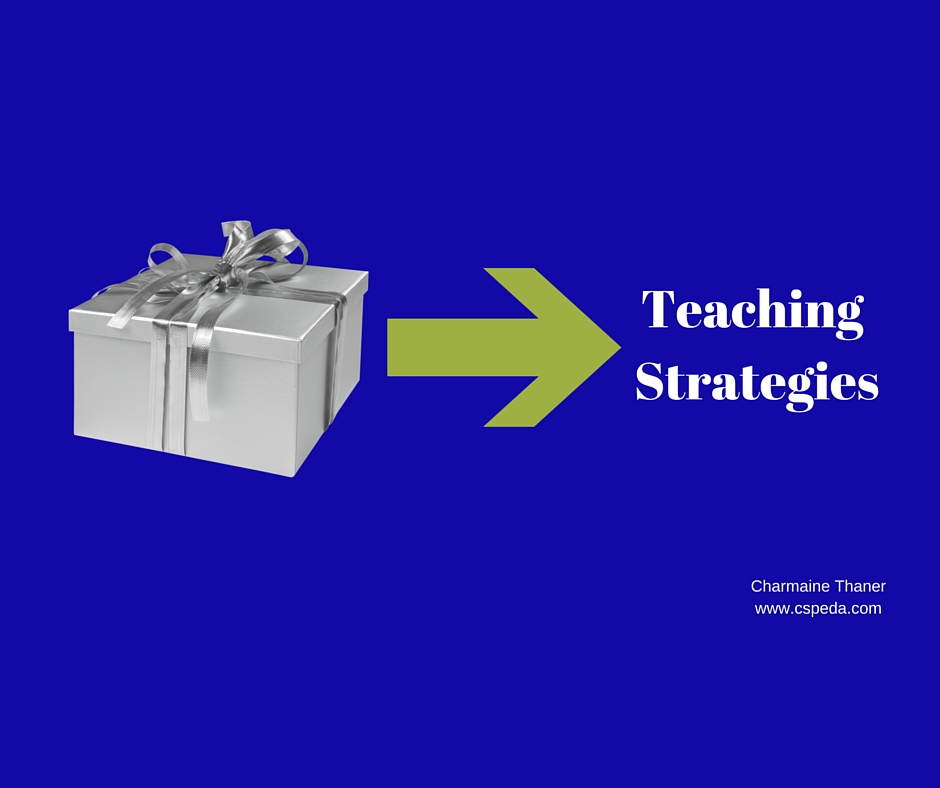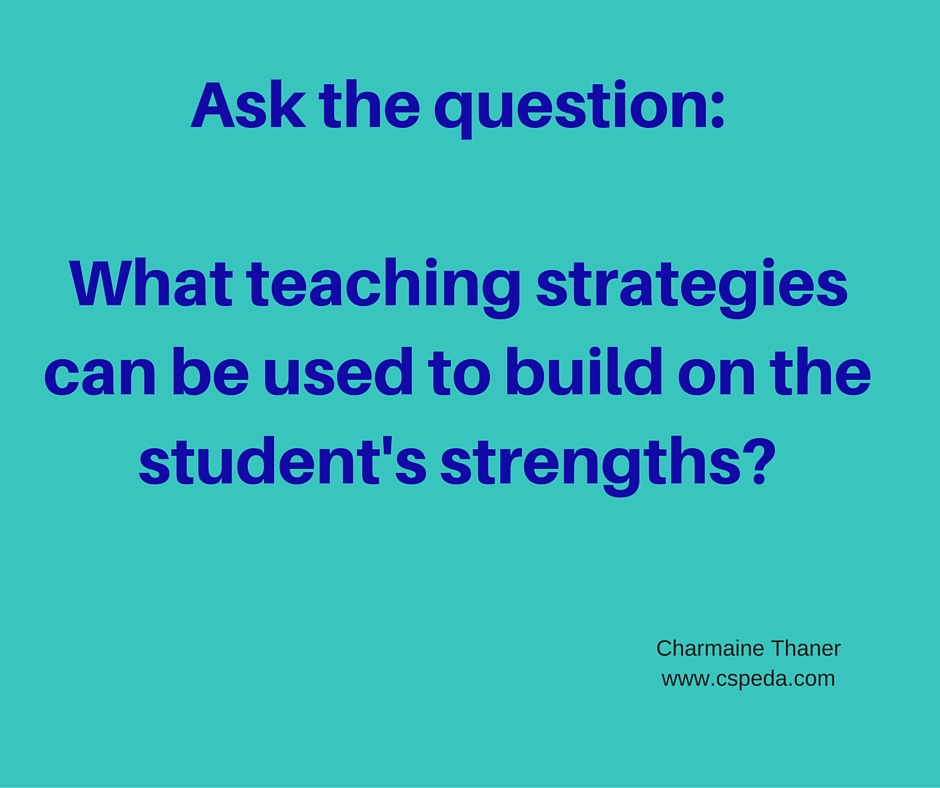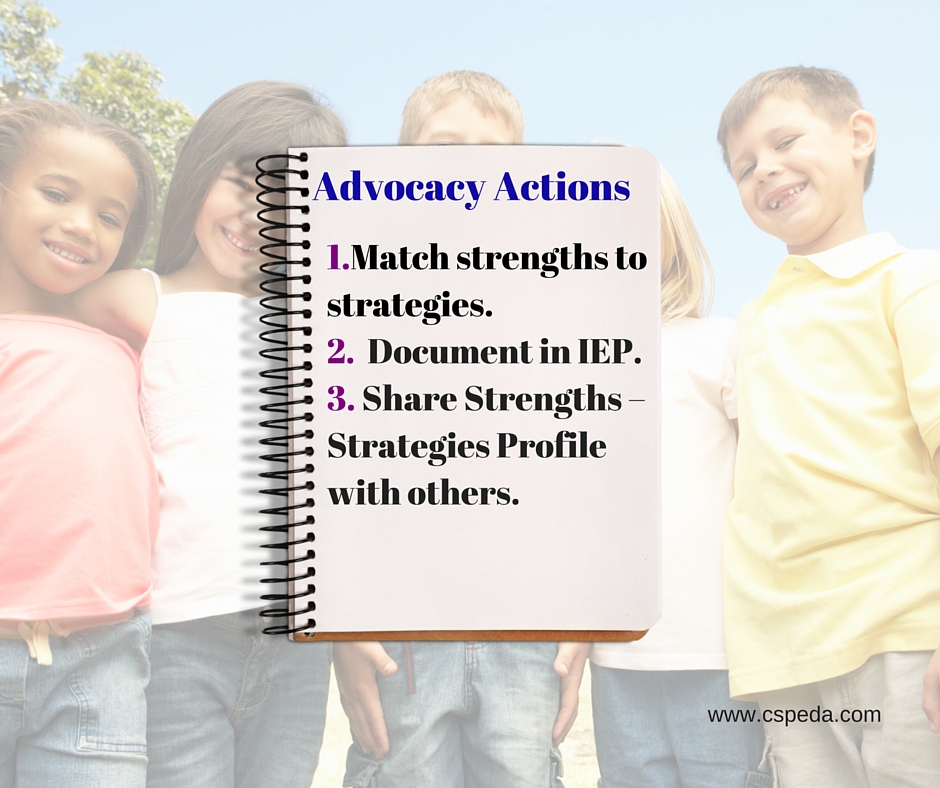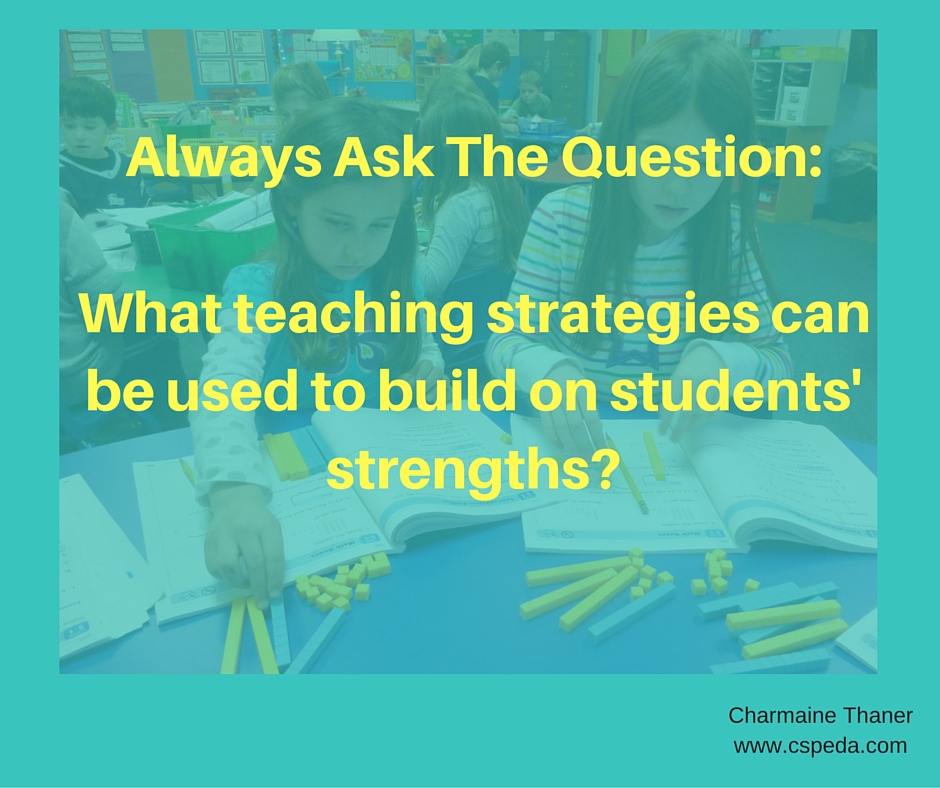The Question To Always Ask
New: Watch the YouTube video of this newsletter. Click here.
Do you have a child that’s thrilled when he can do cool experiments like putting Mentos candy in a bottle of Diet Coke and watching the geyser erupt? What clues does this Mentos-Diet Coke experiment give you about your child’s interests? How does knowing your child likes cool experiments help his teachers at school?
It could mean Science is a favorite subject – if there is less reading of a textbook and more time with experiments. It could mean your child will be more motivated to learn if he has a chance to use manipulatives.
It’s very beneficial for you and the teachers to know what your child’s interests and gifts are, but we don’t want to stop there. The question that doesn’t get asked enough is: How can we match a student’s strengths to instructional strategies and materials ?
- I suggest a few days before the IEP meeting to sit down with the teachers, and share ideas on how your child’s strengths can be built on. You want to look at ways the teacher can teach him new skills, get him more engaged in the learning, and how the teacher can evaluate what he has learned – while tapping into his strengths, gifts, and interests.
- With the teachers, jot down your child’s strengths/gifts and next to that, add the instructional strategy that would build on those strengths. Click here to see a sample Strengths – Strategies Profile. Just think how useful a list of Strengths and Strategies would be for each person who works with you child to have!
- At the IEP meeting, share the Strengths – Strategies Profile. For instance, if your child is working on learning key science concepts as an IEP goal, is a hands-on learner, and loves to work with a partner, the teacher could make sure he has time to complete science experiments and be paired with a peer. She could also have him demonstrate the concepts he’s learned with a project-based assessment.
Make sure to capture this in the IEP document. This may be appropriate to write in the Accommodations section or possibly include in the goals.
Here is another example: what if your child loves to read to his younger cousins – how can a teacher use that information at school? One idea is to have your child go to the kindergarten class and read to them. This will help your child practice reading skills while doing something he loves. And that ladies and gentlemen is a big win for your child!
Some parents and teachers worry, that doing all of this individualization is going to be too time consuming. Well, first of all, we need to remember what the I in IEP stands for and secondly, once the teachers get use to thinking of how to offer your child choices about how he learns new skills or concepts, they’ll see that many other students in the class will also benefit from more choices.
So, what begins as a process for your child will hopefully, be a way of thinking and teaching all the students in the classroom.
The Advocacy Actions to take are:
- Meet with teachers before the IEP to discuss instructional strategies and materials to try with your child. Click herefor a handout you can use.
- At IEP meetings write in the Accommodations section of the IEP document accommodations that relate to your child’s strengths and gifts. An example could be writing an accommodation for math manipulatives, or a multi-sensory reading program.
- Share a copy of your child’s Strengths–Strategies Profile with staff that work with your child.
What we want is for teachers to be motivated to learn about your child’s gifts, strengths, and interests and then USE that information when they are choosing instructional strategies and materials for your child to use.
I’m here to help you become an even more effective advocate for your child. As a parent, I have been where you are and I understand the stress of what speaking up for your child can cause. I also know we can make some positive changes for your child! If you have questions, post them on my Facebook page or send me an email.
Take care,
Charmaine

